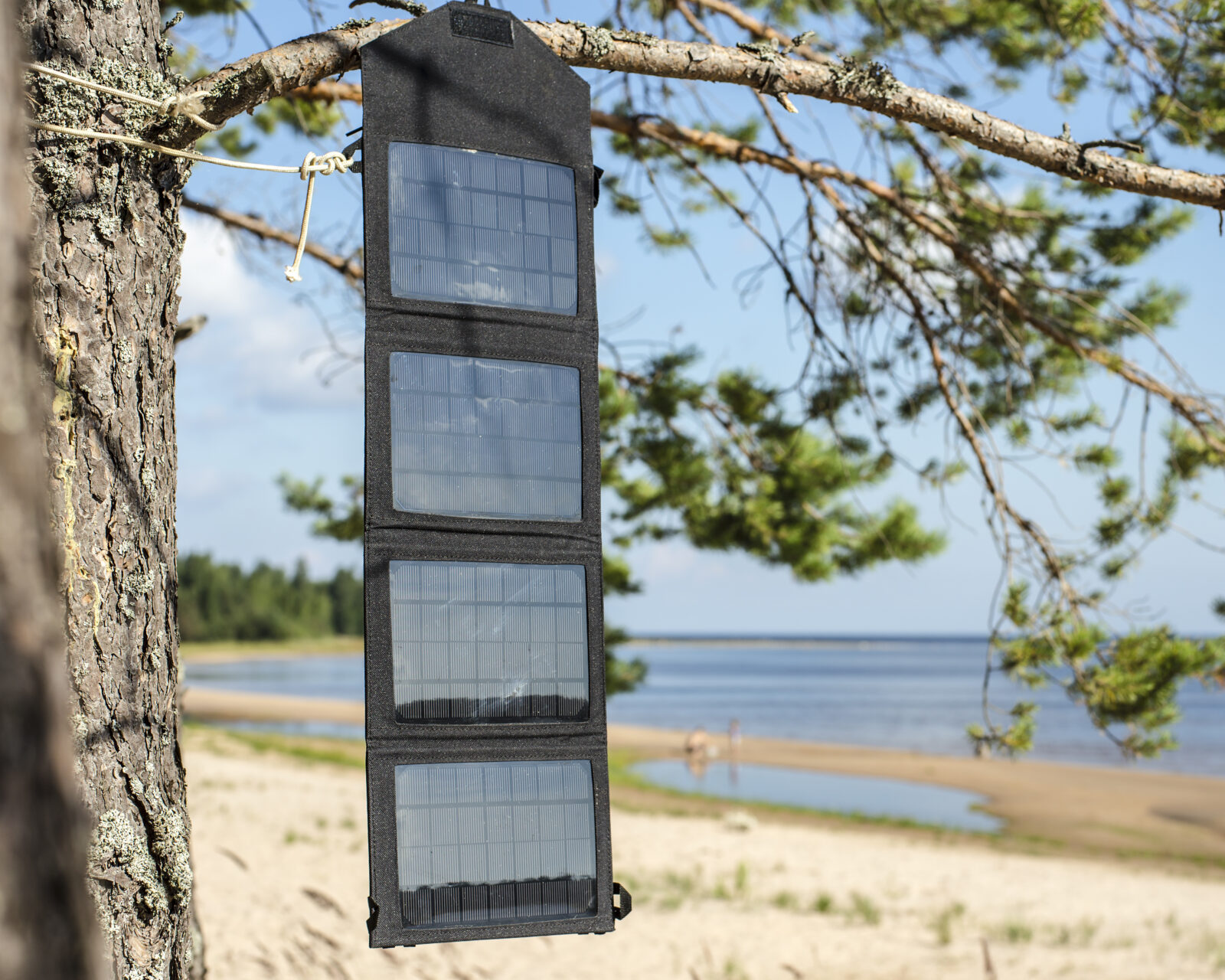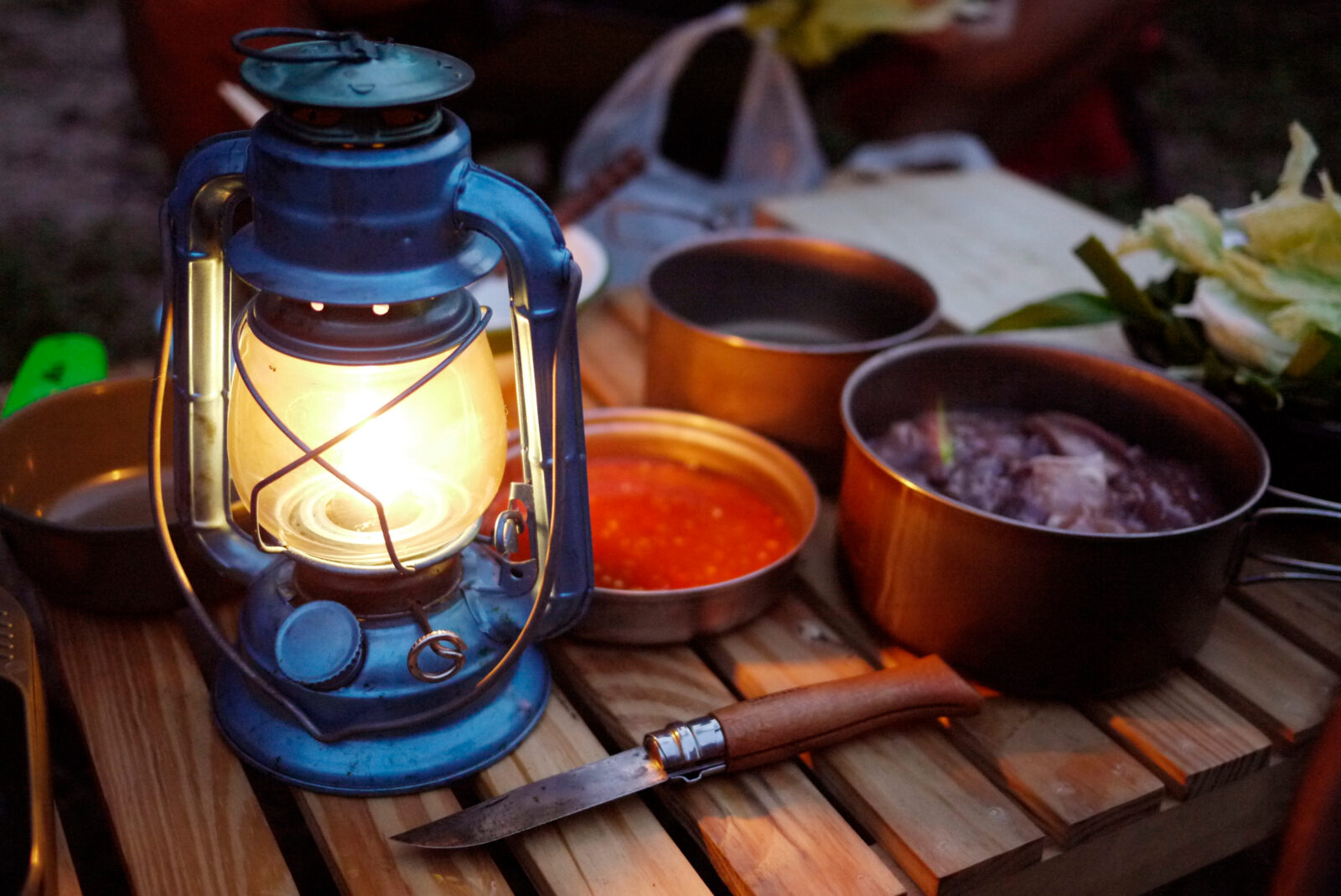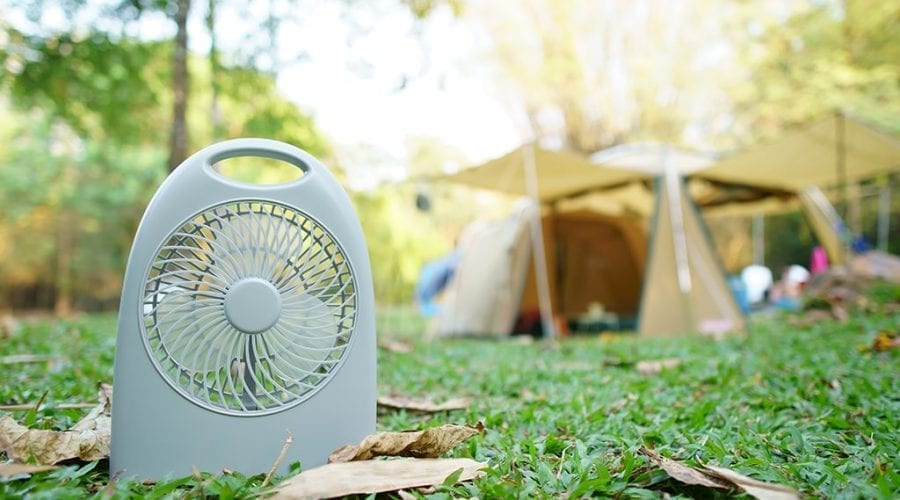If you’re fed up with cold nights while camping, it’s time to get a tent heater.
On this page, we’ll be covering the popular tent heater models on the market today. You’ll also find all the important information you need to know to make an informed buying decision.
Some key features you should look for when shopping for a tent heater are :
- Power source. If you go with an electric heater, will you have a power source to keep it running? If not, you may want to consider a propane, butane, or kerosene-powered heater.
- BTUs or Watts. Electric heaters measure power in watts. You’ll want enough power to feel the heat. The same goes for BTUs with gas-powered heaters.
- Safety. Heaters can be dangerous if not used correctly.
Our top picks for tent heaters
Best for Budget Minded : AmazonBasics 500W Ceramic Heater
“Small enough to place in a tent and not worry about touching it while it’s on.”
Value for Money : GiveBest Portable Electric Heater
“Can crank all the way up to 1,500 watts, which is perfect for a cold night in a tent.”
Best Heat Output : Dura Heat Indoor Kerosene Heater
“Another great tent heater that you can bring with you on the coldest of nights.”
Best Compact Sized : Mr. Heater Little Buddy Heater
“Tops out at 9,000 BTU, which can quickly heat up a four-person tent.”
Best for Large Tents : Sengoku HeatMate Portable Heater
“Can heat up to a 380-square-foot room, making it one of the most powerful heaters.”
AmazonBasics 500W Ceramic Heater
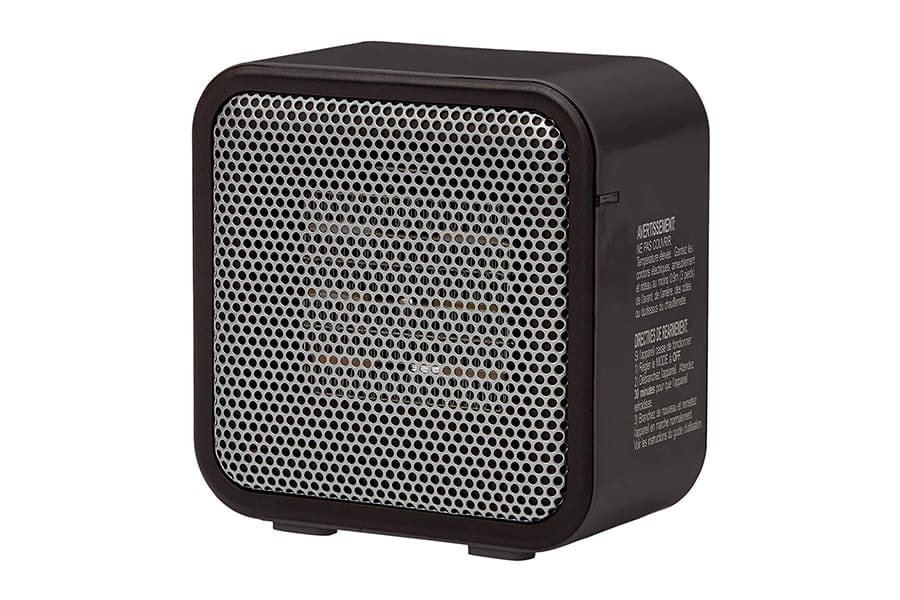
- Heating Capacity : 500 watts
- Heating Source : Electric
For the weekend campers taking advantage of a public campsite’s power supply, this extremely affordable AmazonBasics 500W ceramic heater might be all you need to keep your tent nice and toasty.
While many users prefer this heater for keeping their hands warm at the office, it can make for a nice tent fan. The built-in tip-over protection definitely makes this a safe option. If it tips, power is cut to the heater.
The top selling feature, though, is the size. The Amazon heater is small enough to place in a tent and not worry about touching it while it’s on.
What we like
- Affordable, won’t break the bank for many.
- Multiple colors. Available in four different colors, including red and blue.
- Extra safe. Includes tip-over protection to help prevent fires.
What we don't like
- One temperature setting. As a trade-off for the low price, this heater only has one temperature setting.
GiveBest Portable Electric Heater
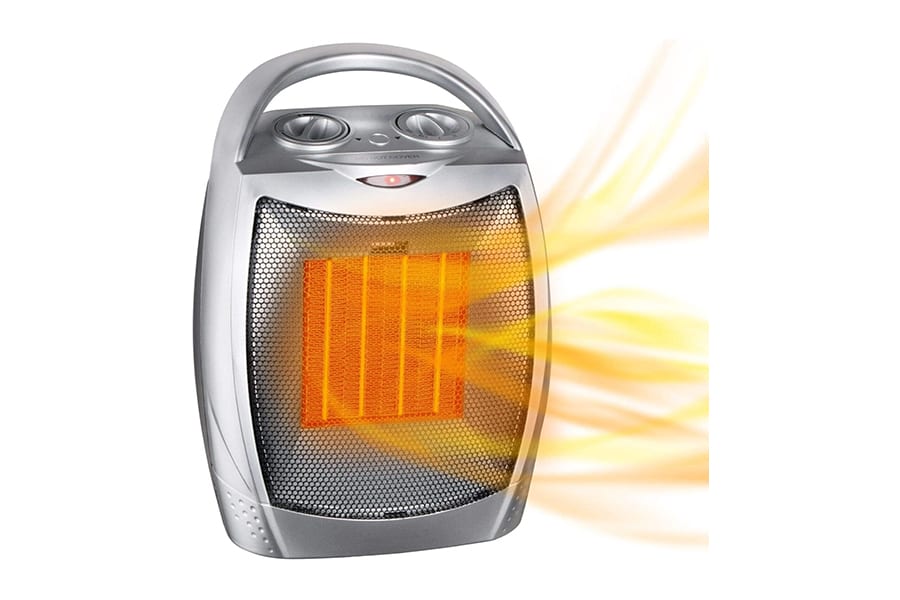
- Heating Capacity : 750 – 1,500 watts
- Heating Source : Electric
Designed for the office, but great for the campsite, the GiveBest Portable electric heater can crank all the way up to 1,500 watts, which is perfect for a cold night in a tent.
This heater is designed to warm up a 200-square-foot room at its max heat. You’ll likely start it at the minimum of 750 watts and adjust accordingly.
It’s made of flame retardant material and features tip-over protection to prevent fires.
All tent heaters include some noise, but a handful of users have complained that this GiveBest heater is a tad louder than its competition.
What we like
- Very hot. For extra cold nights, this heater can crank to 1,500 watts.
- Energy efficient. A high-speed fan spreads heat quicker and uses less electricity.
- Portable. For its heat output, this heater is relatively small and compact.
What we don't like
- Loud. Some users complain this heater is louder than similar products in its class.
Dura Heat Indoor Kerosene Heater
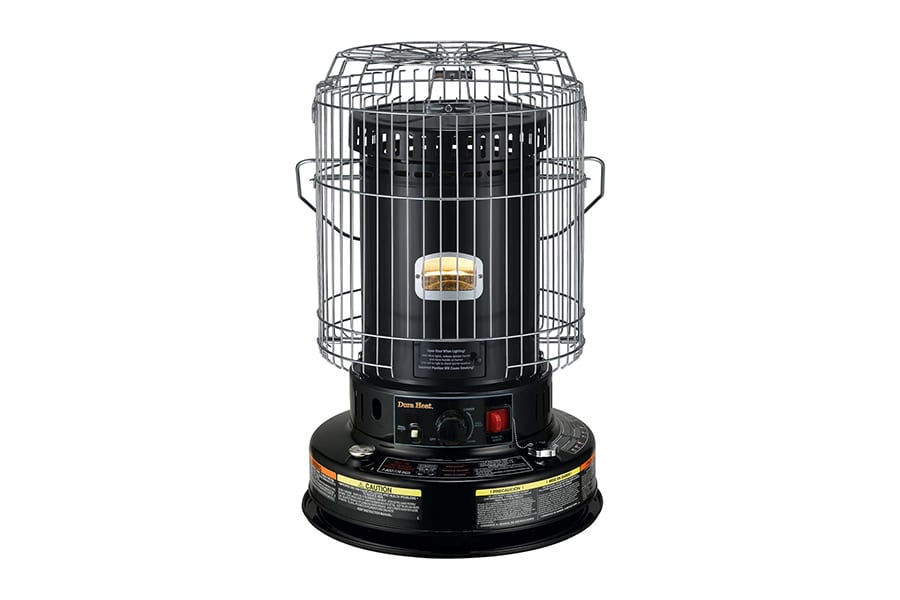
- Heating Capacity : 23,800 BTU
- Heating Source : Kerosene
The Dura Heat Indoor kerosene heater is another great tent heater that you can bring with you on the coldest of nights. With 23,800 BTUs, you’ll likely put it on for an hour or so before turning it off and falling asleep for the night.
This Dura Heat heater is a little bigger than other heaters in its class, but that’s typically not a big deal if you’re deciding to camp in colder weather.
Remember, powerful heaters like this tend to be more expensive.
What we like
- Minimal odor. A no-lift heat chamber minimizes that startup smell.
- 360º heat. The design allows you to set it up in the middle of the tent and heat it all around.
- Hot. This can handle the coldest of nights at 23,800 BTUs.
What we don't like
- No lift. While the no-lift heat chamber prevents odor, you can’t light it manually.
Mr. Heater Portable Buddy Heater
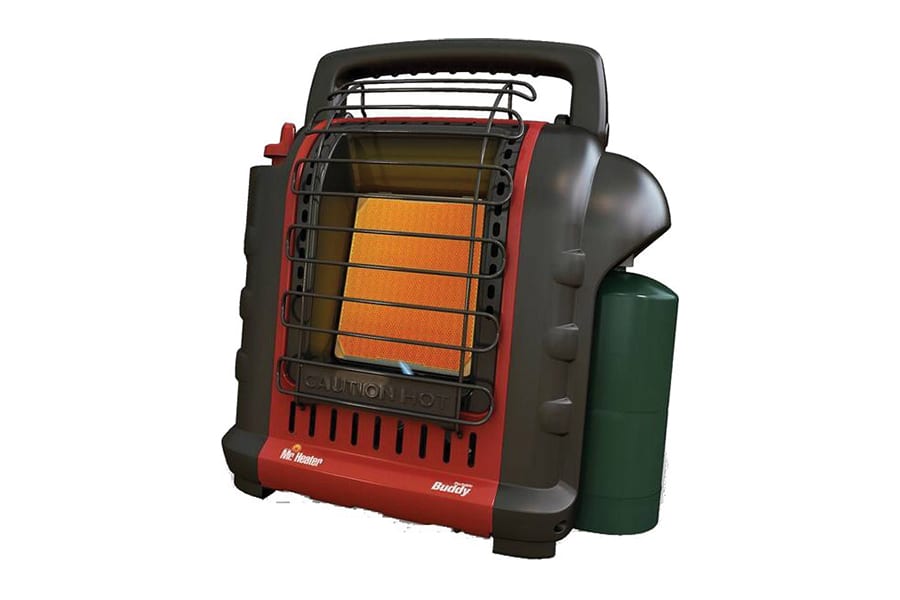
- Heating Capacity : 4,000 or 9,000 BTU
- Heating Source : Propane
If you’re looking to heat up your tent before heading to bed on a cold night or right when you wake up, the Mr. Heater Little Buddy Heater might be exactly what you need.
This propane heater tops out at 9,000 BTU, which can quickly heat up a four-person tent. It will burn through its one-pound propane canister at that level after about six hours.
Safety is obviously the most important part of any tent heater and this one by Mr. Heater has several great features, including an oxygen depletion sensor and an audible tip-over safety shutoff. If this fan tips over, you won’t have to worry about fire.
What we like
- Variable temperature. Adjust to low or hot depending on the weather.
- Extra safe. An improved tip-over safety switch now makes a sound to alert you.
What we don't like
- Expensive. The durability and power of this heater doesn’t come cheap.
Texsport Portable Propane Heater
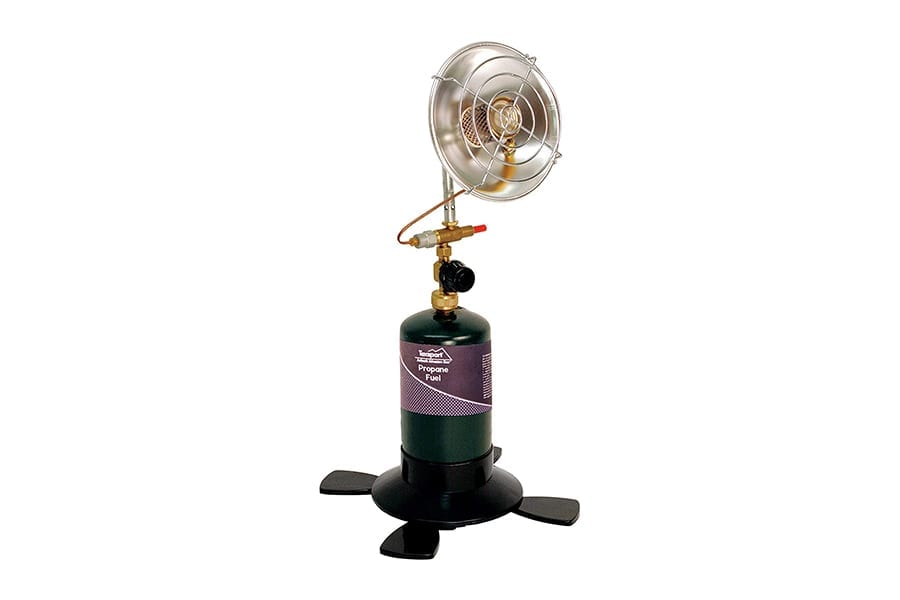
- Heating Capacity : 2,890 BTU
- Heating Source : Propane
Featuring a durable stainless-steel burner, the Texsport Portable Propane Heater is a perfect tent heater while camping as long as you use it with some common sense.
First, with 2,890 BTUs, this heater emits plenty of heat to get you through a cold night outdoors.
Now, the design is a little wonky and could potentially tip over if you’re not careful. Some users have suggested putting it in a small dog cage to ensure it doesn’t tip. Its auto shut-off fuel valve triggers when the flame goes out.
Some users have complained this Texsport heater can be loud, but if it keeps you warm, you can probably look past the noise.
What we like
- Efficient. On low, this heater can make it through an entire night in the tent.
- Affordable. For the heat output, this tent heater is a great value.
What we don't like
- Weird design. An odd design when paired with a propane tank.
APG Outdoor Camping Heater
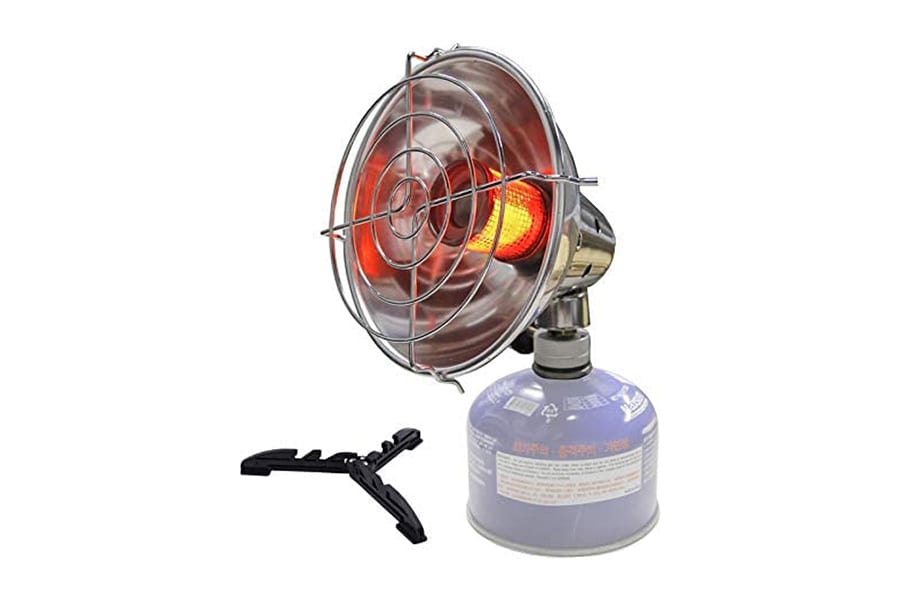
- Heating Capacity : Varies
- Heating Source : Butane
Made of durable stainless steel, the APG Outdoor Camping Heater easily mounts to a gas stove and has a valve to control heat.
Butane heaters come with their own challenges. If you’re using it in a tent, you need to make sure there’s proper ventilation. And you need to watch the flame, which can be sporadic.
There’s no starter on this heater, but if you use a stick lighter, it starts up very quickly.
The good news is this APG Outdoor Camping Heater is pretty efficient and can fit all sorts of fuel canisters. At a lower heat level, it can last all night.
What we like
- Safe to use butane at elevation.
- Durable. Stainless steel frame won’t damage easily.
- Storage bag. Includes a nice storage bag for packing.
What we don't like
- No starter. You’ll need to light this heater manually.
Mr. Heater Little Buddy Heater
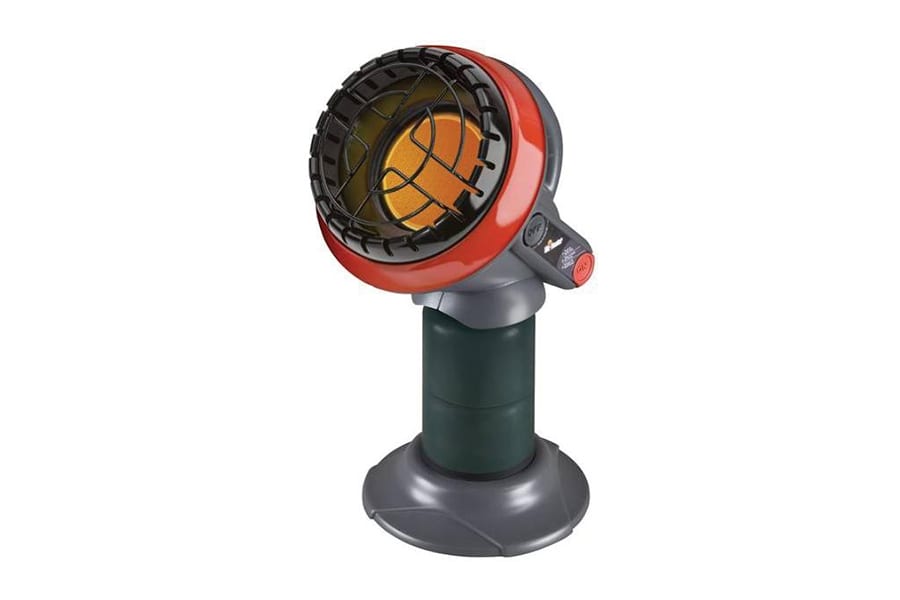
- Heating Capacity : 3,400 BTU
- Heating Source : Propane
The Mr. Heater Little Buddy has a small footprint with big upside inside a tent.
There shouldn’t be any worries about using this heater in a tent. It includes a stable platform, an oxygen depletion sensor and an accidental tip-over safety shutoff. It’s also odor-free.
With only six hours of burn time, you may need to heat up a tent for an hour, before turning it off and falling asleep for the night. If you’re camping for a few nights, you might need to bring extra propane.
Remember, if you camp in Colorado or other states at elevation, this Mr. Heater product won’t function safely once you’re above 7,000 feet.
What we like
- Easy start. Lights by pushing and holding the ignition button.
- Small size specifically designed for a tent.
What we don't like
- Average burn time. With a one-pound propane tank, it can burn for six hours, which might not be enough for some people.
Sengoku HeatMate Portable Heater
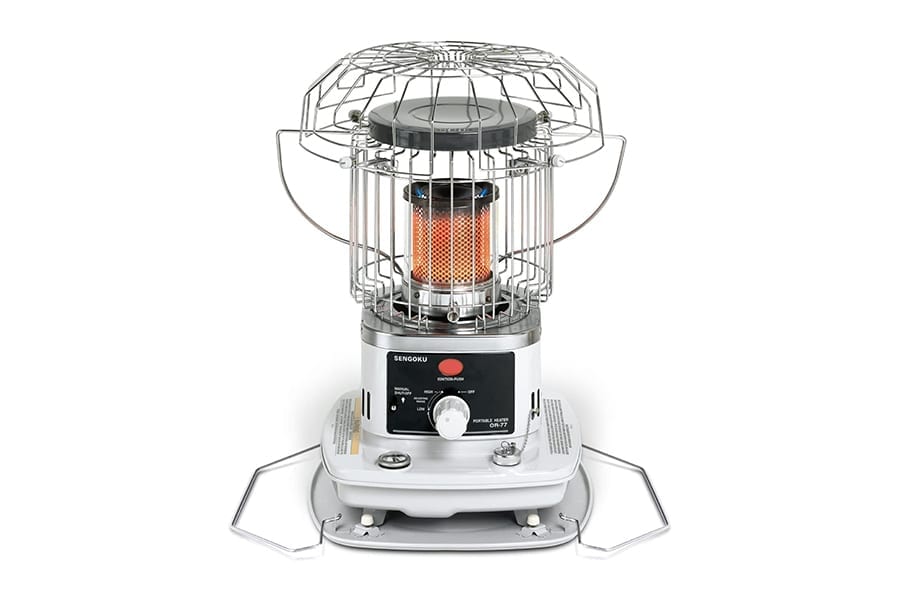
- Heating Capacity : 10,000 BTU
- Heating Source : Kerosene
The Sengoku HeatMate Portable Heater may be too hot for a two- to four-person tent, but it’s a great option while sitting around a picnic table on a cold night while camping.
With 10,000 BTUs, it can heat up to a 380-square-foot room, making it one of the most powerful heaters on our list.
If you’re looking for a heater to keep around the campsite, the Sengoku heater is a great option, but it’s not cheap, so be prepared.
What we like
- Very hot. At 10,000 BTUs, this heater is one of the hottest on our list.
- Wind protection. Engineered to protect from wind that may blow the flame.
- Large capacity. The large, 1.2-gallon capacity can keep this heater on for 14 hours.
What we don't like
- Expensive. Omni-radiant heaters aren’t cheap, but they work really well.
Lasko Ceramic Heater
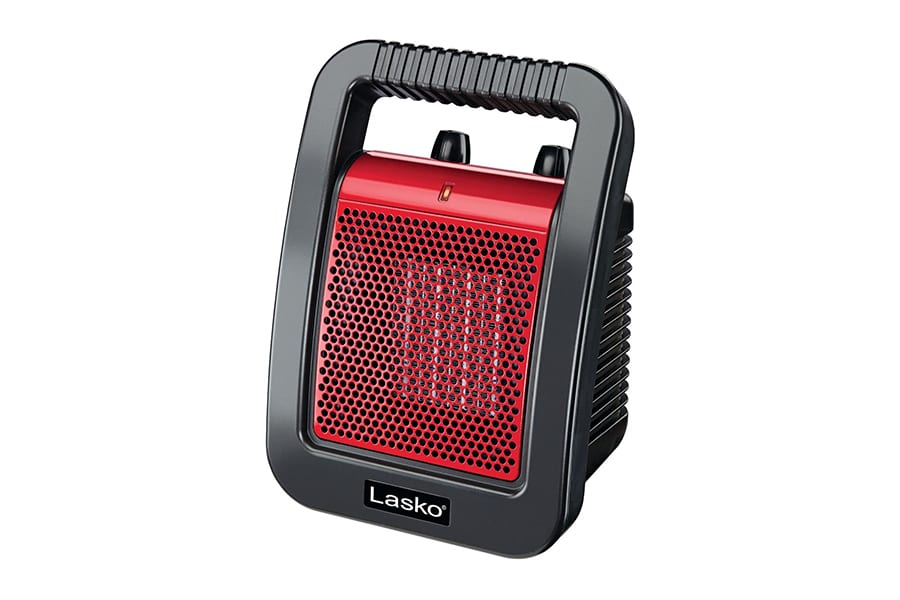
- Heating Capacity : 1,500 watts
- Heating Source : Electric
The Lasko Ceramic Heater is designed for the garage, but can make a great camping heater in a pinch.
You need to figure out how to power this heater while camping if you’re not using a public campsite with available electricity. But once it’s on, you’ll have more than enough heat to keep it warm inside your tent.
If the body gets too hot while on, it’ll automatically cut power to the heater. Once things cool down, it will turn back on.
This Lasko heater is extremely durable and also includes a great easy-grip carry handle, which is a minor feature, but much appreciated.
What we like
- Self-regulates. If the body gets too hot, it turns off.
- Multiple modes. Switch between high, low and fan-only.
- Warranty. Includes a three-year limited warranty.
What we don't like
- Low torque. The fan power isn’t very powerful to really blow the hot air.
Tent Heaters Buying Guide
There are many factors you need to consider before purchasing a tent heater.
Use this guide to make the best possible buying decision.
Heat source
You have plenty of options when it comes to tent heaters, especially when it comes to the power source. Here are the main types of heater power sources you need to know about before making your purchase.
Electric
Electric heaters, like the Lasko Ceramic Heater, are becoming more common because they’re the safest possible option because you don’t have to worry about fuel and fumes.
But they also have a host of challenges. For starters, they’re typically not as hot as their gas-powered counterparts. The bigger issue, though, is actually powering them.
If you typically camp at public campsites where there’s electricity available on site, then an electric tent heater is a no-brainer. But for those more rural trips, you’d have to rely on power banks, which would drain pretty quickly by a heating device.
The good news with electric heaters is that you don’t have to worry about bringing multiple canisters of fuel to keep it powered.
Gas
Propane and butane are the most-common fuels for gas-powered tent heaters.
The biggest concern with gas is the emission of carbon monoxide. All heaters emit a small level of CO2, but not enough to cause you any issues.
Propane works much better than butane in colder temperatures. Butane, the fuel found in the APG Outdoor Camping Heater, can light quicker and typically emits a stronger level of heat.
Kerosene
Kerosene-powered tent heaters, including the Sengoku HeatMate Portable Heater, are another great option because it’s typically cheaper than propane, but that fuel can be tough to find.
Kerosene’s big selling point, though, is its energy potential. It has roughly 135,000 BTUs of energy per gallon, compared to propane’s 91,333 BTUs.
Halogen
A halogen-powered heater uses the halogen element in a heating lamp and bulb to warm your tent. That means you need electricity to power your heater. Halogen heaters are popular because they are cheap to run.
Heating capacity in BTU and watts
One of the biggest questions you likely have when purchasing a tent heater is, “How many BTUs or watts do I need to stay warm?”
Of course, there isn’t a specific number to point to, but there are a few rules of thumb you can go by.
First, use these statistics :
- 1 square feet of tent needs 150 BTUs to heat.
- 1 person creates 750 BTUs worth of heat.
Next, figure out the square footage of your tent (length times width) and then multiply that number by 150, which is the number of BTUs needed to heat an empty tent.
Next, multiply the number of people in the tent by 750 and then subtract that number from the empty tent BTU number and you’ll get the BTUs needed.
So, if you have a 70-square-foot tent and two people typically sleep in it, you would roughly need a tent heater that emits 9,000 BTUs.
Electric heaters aren’t as hot as gas-powered heaters. So, 9,000 BTUs equates to 2,600 watts.
The AmazonBasics 500W Ceramic Heater only emits 500 watts. GiveBest’s Portable Electric Space Heater is on the higher side at 1,500 watts.
Safety features
It doesn’t matter if it’s gas- or electric-powered, safety is always a huge concern when it comes to tent heaters.
- Tipping. A big concern is if a heater tips over, it could start your tent on fire. Many heaters, including the Lasko Ceramic Heater, automatically cuts off the heat once it tips.
- Carbon monoxide sensors. The other concern is running a gas-powered heater inside a closed tent. It’s always recommended to ventilate your tent. Thankfully, there are many heaters, like the Mr. Heater Little Buddy Heater, that include an oxygen depletion sensor to alert you before it’s too late.
Size and weight
Like all camping gear, you want to keep things light and compact.
Electric heaters are nice in this respect because you don’t have to worry about packing several fuel canisters that are required by gas heaters.
While you want things light, a little bit of weight is a good thing for a heater to ensure it stays in place. The Sengoku HeatMate 10,000-BTU heater weighs more than 20 pounds, which won’t blow away if heavy wind comes in.
Most heaters are between 5 to 10lbs.
Noise levels
One of the last factors to keep in mind when buying a tent heater is the noise level. These heaters include fans to emit heat, which can make noise that could bother light sleepers.
Electrics tend to be louder, but many prefer to use them as white noise, especially if they camp on public campsites.
Most outdoor retailers will let you try out a heater in store to determine what kind of noise it makes.
Andrew Dodson
Andrew Dodson is an avid camper who enjoys the great outdoors with his wife and two-year-old son. He resides in Colorado, where you can often find him enjoying hikes with a toddler strapped to his back and mini goldendoodle Percy nearby.
